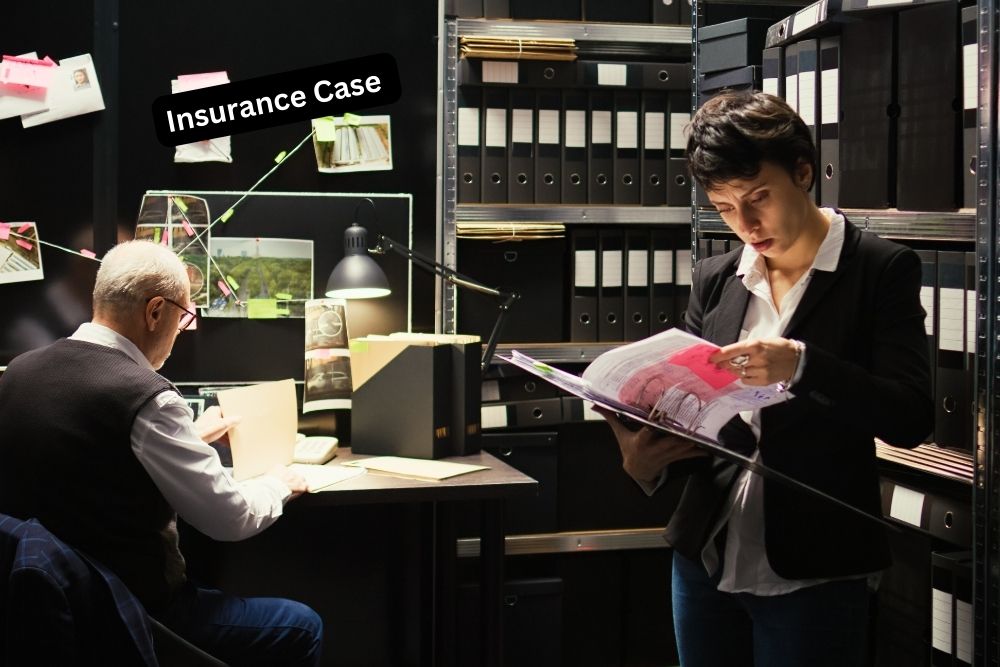
Insurance is a critical component of financial planning, offering a safety net against unforeseen risks. However, navigating insurance cases—whether as a claimant or an insurer—can be complex. This guide delves into the intricacies of insurance case, covering types, processes, legal considerations, and practical tips for successful resolution.
Table of Contents
- Understanding Insurance Cases
- Types of Insurance Claims
- Health Insurance Claims
- Auto Insurance Claims
- Life Insurance Claims
- Property Insurance Claims
- Key Steps in Handling Insurance Cases
- Filing a Claim
- Documentation and Evidence Collection
- Communicating with the Insurer
- Common Challenges in Insurance Cases
- Claim Denial
- Delayed Settlements
- Underpaid Claims
- Legal Framework Governing Insurance Cases
- Policy Terms and Conditions
- Regulatory Compliance
- Dispute Resolution Mechanisms
- Best Practices for Insured Parties
- Best Practices for Insurers
- Case Studies: Real-Life Examples
- Conclusion
- FAQs on Insurance Cases
1. Understanding Insurance Cases
Insurance cases arise when a policyholder files a claim with their insurance provider to recover damages or losses covered under their policy. These cases involve verifying the claim, assessing the validity, and determining the payout amount.
2. Types of Insurance Claims
Health Insurance Claims
- Covers medical expenses due to illness or accidents.
- Typically requires pre-authorization for planned treatments.
Auto Insurance Claims
- Involves accidents, theft, or damage to vehicles.
- Includes third-party liability and comprehensive coverage claims.
Life Insurance Claims
- Pertains to claims by beneficiaries after the insured’s demise.
- Includes term life, whole life, and endowment policies.
Property Insurance Claims
- Covers damages to residential or commercial property due to fire, natural disasters, or theft.
3. Key Steps in Handling Insurance Cases
Filing a Claim
- Notify the insurer immediately after the incident.
- Complete the claim form accurately and thoroughly.
Documentation and Evidence Collection
- Submit all necessary documents, such as medical reports, photographs, and receipts.
- Maintain copies of all submitted paperwork.
Communicating with the Insurer
- Maintain a clear line of communication.
- Respond promptly to any requests for additional information.
4. Common Challenges in Insurance Cases
Claim Denial
- Often due to missing information, policy exclusions, or errors in filing.
- Solution: Review the denial letter and appeal if necessary.
Delayed Settlements
- Caused by incomplete documentation or lengthy investigations.
- Solution: Follow up regularly and seek legal advice if needed.
Underpaid Claims
- Arises when insurers calculate payouts lower than expected.
- Solution: Request a breakdown and negotiate if necessary.
5. Legal Framework Governing Insurance Cases
Policy Terms and Conditions
- Define the coverage scope and exclusions.
- Essential to review thoroughly before purchasing a policy.
Regulatory Compliance
- Governed by local insurance laws and regulations.
- Ensures fair treatment of claimants.
Dispute Resolution Mechanisms
- Mediation, arbitration, or court proceedings may resolve disputes.
6. Best Practices for Insured Parties
- Read and understand the policy terms.
- Maintain accurate and complete records of all transactions.
- Seek professional advice for complex cases.
7. Best Practices for Insurers
- Provide clear and transparent communication.
- Process claims efficiently and fairly.
- Train staff to handle cases with empathy and professionalism.
8. Case Studies: Real-Life Examples
Case Study 1: Denied Health Insurance Claim
- Situation: Claim denied for a pre-existing condition.
- Resolution: The claimant appealed and proved the condition was not pre-existing.
Case Study 2: Auto Insurance Dispute
- Situation: Disagreement over repair costs.
- Resolution: Independent appraisal resolved the issue.
9. Conclusion
Insurance cases are often daunting but manageable with the right knowledge and approach. Both claimants and insurers must prioritize transparency, adherence to legal frameworks, and effective communication. By doing so, disputes can be minimized, and the claims process streamlined.
10. FAQs on Insurance Cases
Q1: What should I do if my claim is denied?
A: Review the denial letter and appeal with supporting evidence.
Q2: How long does it take to settle an insurance case?
A: Settlement times vary based on case complexity and documentation.
Q3: Can I sue my insurer for bad faith?
A: Yes, if the insurer deliberately mishandles or denies a valid claim.





Leave a Reply